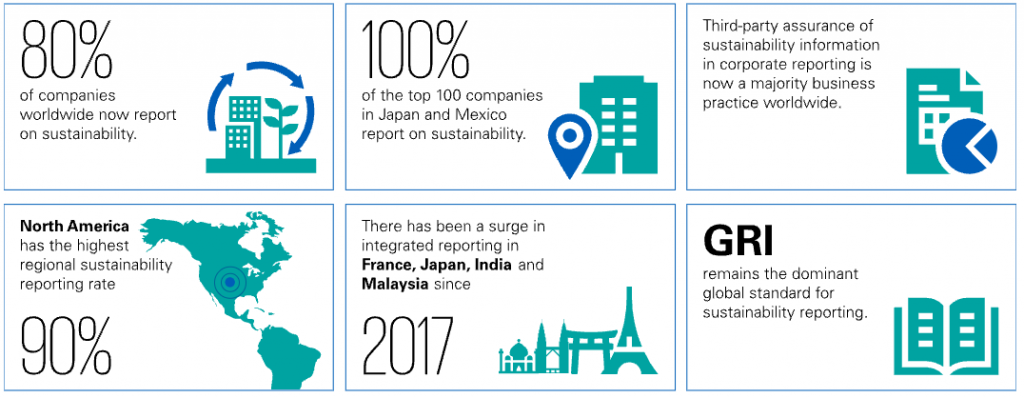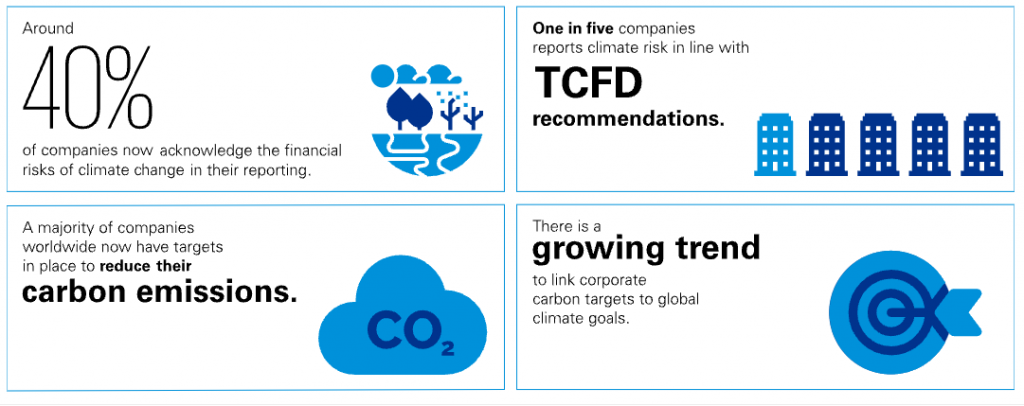What is sustainability reporting
Sustainability reporting is a practice adopted by corporations to disclose and communicate performance of Sustainability linked goals, metrics, and impact. This is slightly different from ESG – environmental, social, and governance (ESG) reporting where the ESG goals and impact is measured.
Simply put, a sustainability report is a report about an organization’s environmental and social performance. The information may be presented as part of an organisation’s annual report, or in a stand alone report such as a sustainability report, a triple bottom line report, or an environmental or social impact report.
Why is it relevant?
Sustainability reporting can play a crucial role in identifying risks and opportunities for organizations, especially the non-financial ones that can be easily conveyed to stakeholders. With increased transparency, it leads to better decision making, helping organisations build and maintain trust in businesses and governments.
The main target audience for sustainability reports are employees (87%); customers (79%); shareholders (74%); local community (67%); institutional investors (54%); suppliers (59%); analysts (51%) and governments and NGOs (28%).¹ Transparency and reporting positive work are the two most important ways to build public trust in business. According to a 2013 Boston College Center for Corporate Citizenship and EY survey- issuing sustainability reports helped improve firm reputation.

Benefits
- Improved reputation and brand loyalty.
- Identify and better manage their non-financial risks with improved understanding of risks and opportunities.
- Identify new markets or business opportunities and set long term strategies and business goals
- Benchmark performance internally, and against competitors.
- Increased innovation, and improved risk management
- Compare sustainability performance with respect to laws, norms and performance standards.

Global trends in reporting
- Increased demand for more accurate data: According to a McKinsey study, investors say that they “cannot readily use companies’ sustainability disclosures to inform investment decisions and advice accurately”
- Climate change, anti-corruption, labor & human rights are among the top disclosure requirements: The UN, the Global Reporting Initiative (GRI) and the University of Stellenbosch Business School collaboration on sustainability reporting policies highlighted that climate change, anti-corruption, labor & human rights are among the top disclosure requests
- Increased importance of scope 3 emissions and climate actions throughout the supply chain: Apart from reducing and measuring emissions from their own operations (scope 1) and power consumption (scope 2) there is an increased awareness towards indirect emissions that happen throughout the supply chain(scope 3)
- A growing request for sustainability and ESG data from investors: According to a recent study by Harvard, ESG issues have become much more important for long-term investors
Examples of sustainability reports
- GRI
- TCFD
- UN SDG
What SGreen offers
As requirements for sustainability reporting are becoming complex and demanding, businesses and investors are turning to platforms to ease and improve their reporting processes. One major challenge is reporting under multiple reporting frameworks and to multiple stakeholders, especially if it is done manually.
Sgreen- Sustainability reporting platform from Chainflux helps organisations to automate and gather all the reporting data and frameworks in one place. It allows easy and quick reporting on various sustainability frameworks on a go. For budding organizations, new to sustainability, the platform offers sensors to help them measure and collect different metrics for reporting along with easy integration of data through APIs. It enables companies to analyze their sustainability goals over time and share their data directly with investors and important stakeholders.

Leave a Reply